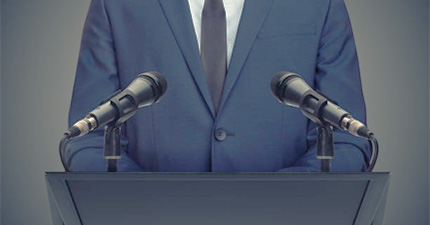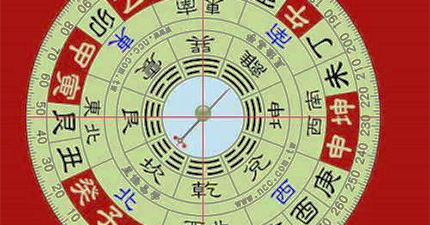The word that Andrew Yang chooses to use to describe the U.S. citizen who lives in an information age is “shareholders.” This word choice is revealing—it’s clear that his policies center a short term and Keynesian inspired stimulus to push america into an entrepreneurial economy. Since America has stopped working as a manufacturing economy, it seems like we’ve never found a new identity. With the internet providing us all with the national and global reach that only big corporations had in the past, why not become a country full of entrepreneurs, of self employed girl bosses who change up the traditional corporate and social conventions of yesterday? Isn’t the best way to overcome injustice to get everyone their own business?
The way it works it this: everyone gets $1000 a month, which means that instead of worrying about rent and food for a short period (before prices catch up), we can all go out and start our own businesses.
The freedom dividend is not: free money that gives people the ability to sustain themselves on a long term basis. The concept of free money is an oxymoron. It’s meant to be a short term solution that gives you a few years to get your shit together and choose how you want to spend your labor, like starting a business.
The thing is, no other candidate is really talking about big picture economic problems at all right now, with automation and tech. And Andrew Yang isn’t going to win this time (probably) but the issues of what kind of economy we need to develop right now and how universal basic income works in an automated society are not going to disappear with this election cycle. We will run into these issues again.
Who is the Freedom Divident really for?
This push into an entrepreneurial society isn’t without its questions. There’s a real danger that, this push toward entrepreneurism is really a step from being exploited by a company and a step towards what Byung-chul Han calls the self exploiting achievement subject. The problem is still neoliberalism (a society whose values are based on the free market). It’s just you’re also a boss (in additional to being a worker).
What entrepreneurism can do is it can make people self identify with the position of being a boss more than the position of being a worker, even if they are actually both. This means that the traditionally leftist principles of labor rights can get left out of a conversation where everyone who is their own boss forgets that they’re also their own worker—issues like family leave, health care, and social security. How the left thinks about these issues will have to be drastically reworked, along with other leftist positions, in an entrepreneurial economy. This means that, for a entrepreneurial economy to work equitably, government has to get bigger to fill the loss of community that the type society a bunch of self exploiting entrepreneurs will create.
That isn’t to say that they can’t be. Yang is running as a Democrat for a reason. He’s said that he supports universal health care because he doesn’t want people who can start businesses to have that burden. However, he’s also said that people who receive welfare will not receive the dividend, which means that some people will get left out of the new economy. He hasn’t taken an strong position about how the government should play a role in shaping a entrepreneurial economy.
Traditionally, the Democratic Party has been very good about talking about working class issues during elections but making policy decisions which are neoliberal and only benefit the middle class. Without a strong stance on what the role the government should play in an entrepreneurial society, a stimulus which only replicates existing class structures into the future is what we will get.
The first question we should be asking Andrew Yang is: Is the Keynesian stimulus created by the freedom divident only beneficial for the middle class? Will some people get left behind by inflationary growth if they cannot receive the freedom dividend due to needing food stamps or other public services?
How will an entrepreneurial society be regulated?
Entrepreneurism isn’t a magic equalizer. Being in business doesn't mean that you will experience class mobility. Some people will have the connections and additional funds to start their businesses. Those people will be of privileged race and class backgrounds.
A case study: When the internet was just starting out, people were starting their own businesses using it. We have a very diverse and healthy market for the websites we used. Independent bloggers and small, niche websites were profitable. Then, a bunch of white dudes who already come from money got in the game and now we only have three websites we all regularly go to, who make up almost the entirely of the market. This is the sort of thing that happens when an entrepreneurial society is unregulated and unresponsive to the dynamics of privilege and class that already exist in society.
The second question we should be asking Andrew Yang is: what sorts of regulations will be put in place to protect the diversity of entrepreneurism that a freedom dividend would create from corporate consolidation?
Reparations
Yang has gone on The Root and spoken about how the freedom dividend is a beginning to paying reparations to black and indigenous americans for the country’s foundational history. He’s said that he’s trying to make reparations palettable by marketing it as something that’s available for everyone.
However, the freedom dividend is not reparations. It’s a stimulus. This means that it’s an amount of money which is given to everyone which will eventually make each dollar worth less and eventually become meaningless. How rich you are is not dependent on how much money you have. Money is a social relation. Someone who had $20,000 was wealthy in 1850 but not today. How rich you are depends on how much more money you have than everyone else who is living in your time period. You can’t pay reparations by paying everyone. The whole point of reparations is to make black and indigenous people richer than they are today. If you give the money to everyone, you’re not making anyone richer.
The third question that we should all be asking Andrew Yang is: what do reparations look like in a country that gives an universal basic income? How can reparations close the wealth gap and not just the income gap within an entrepreneurial economy?
Climate Change
Lastly, an entrepreneurial economy can have effects on climate change. Because companies are smaller, markets are also less fragile and more accountable. There’s less of a chance for a company of three people to choose to dump toxins into the water than a company of 20,000 people. If they choose to do so, we don’t have to worry about big financial catastrophes as much if we need to shut the company down because it is smaller and because there will probably be other companies providing a similar service. When companies are smaller, it’s easier to hold people accountable.
On the other hand, the effects of climate change are already underway and their catastrophic effects are more likely to impact communities of color. We will all begin to see disasters created by the warming and will all need relief from our homes getting destroyed, injuries, and infrastructure falling apart in the near future. The risk of an entrepreneurial society is that, with everything privatized, survival will become a luxury for only those with means. Again, we need to see government getting bigger in terms of providing basic survival needs to us all—not just stimulus package that puts our well being into our own hands.
Andrew Yang has said that he’s in favor of charter schools, which makes me wonder why he’s running as a Democrat in the first place if he’s just out here supporting the free market for education. In terms of things like education, disaster relief, and infrastructure, we just can’t rely on a society of business owners. The reason is that these are not and should not be profitable businesses. The only reason you would make money off disaster relief, education, and infrastructure is if you’re profiting off of inequality.
The last question we should all be asking Andrew Yang is: in an entrepreneurial economy, what public services should not be a part of the private sector?


